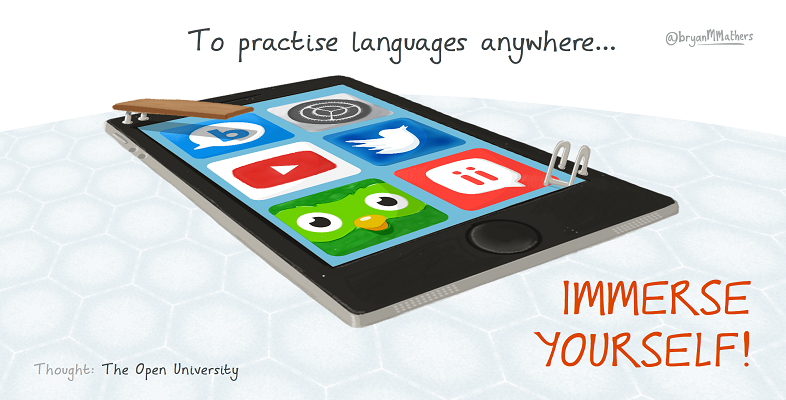Interested in learning a second language but don't know where to start? Learn about the concepts and skills required to learn languages successfully in this free course, How to learn a language.
This course will introduce you to the skills and strategies you need for language learning. You will be encouraged to set realistic goals when learning a language, and you will be given advice on how to keep motivated to achieve these goals. You will
practise speaking skills and vocabulary learning strategies.
You will watch videos featuring other language learners to learn from their experience and the three course authors will share their top tips on how to successfully learn another language.
Watch the following video in which one of the authors, Open University academic Fernando Rosell-Aguilar, introduces the course further.
Enrolling on the course will give you the opportunity to earn an Open University digital badge. Badges are not accredited by The Open University but they're a great way to demonstrate your interest in the subject and commitment to your career, and to provide evidence of continuing professional development.
The Open University would really appreciate a few minutes of your time to tell us about yourself and your expectations for the course before you begin, in our optional start-of-course survey . Once you complete the course we would also value your feedback and suggestions for future improvement, in our optional end-of-course survey . Participation will be completely confidential and we will not pass on your details to others.

This course is accredited by the CPD Standards Office. It can be used to provide evidence of continuing professional development and on successful completion of the course you will be awarded 24 CPD points. Evidence of your CPD achievement is provided on the free Statement of Participation awarded on completion.
Anyone wishing to provide evidence of their enrolment on this course is able to do so by sharing their Activity Record on their OpenLearn Profile, which is available before completion of the course and earning of the Statement of Participation.
Earn this free Open University digital badge if you complete this course! The badge can be displayed, shared and downloaded as a marker of your achievement. The badge is awarded for completing the course and passing the quizzes.
Course learning outcomes
After studying this course, you should be able to:
- understand your motivation for learning languages
- set realistic goals in language learning
- memorise vocabulary
- evaluate independent language learning resources for personal learning goals
- create a virtual immersion environment.
First Published: 16/05/2017
Updated: 27/03/2020
